Resilient and strategic breakthroughs
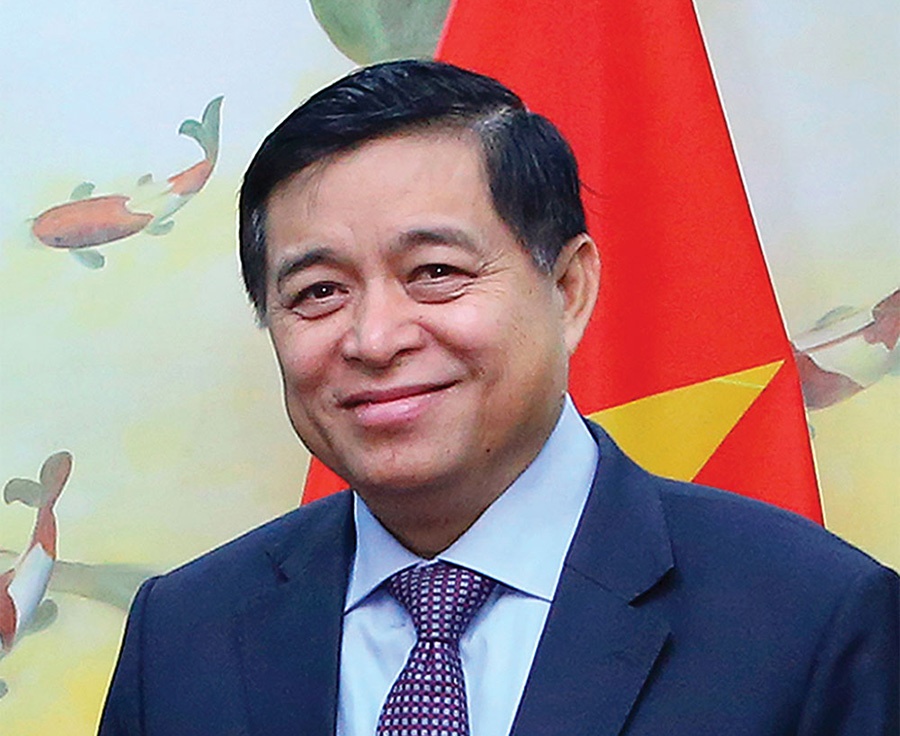 |
| Minister of Planning and Investment Nguyen Chi Dung |
Many of Vietnam’s 2022 statistics were positive and beyond the forecasts. How did the country overcome the hurdles to get such good results?
Vietnam has achieved comprehensive results in numerous sectors and fields, completing and exceeding some socioeconomic targets. Macroeconomy remained stable, inflation was controlled, and major balances were ensured. The average consumer price index was estimated at 3.15 per cent, and GDP growth was at 8.02 per cent.
Financial markets and currencies are basically stable; interest rates and exchange rates are adjusted in line with market developments; liquidity is ensured, credit growth is reasonable, and bottlenecks of capital flow in the economy are removed, directing credit to production and priority sectors. Price management is directed drastically and effectively, especially for essential commodities like petrol and oil.
These results come from the efforts of the whole political system, the joint efforts of the business community, and the support of international partners. Since the beginning of the year, the prime minister has directed all ministries, sectors, and localities to implement the tasks and solutions proposed in all fields.
They deal with both emerging challenges and the long-standing shortcomings of the economy; organising many large conferences to see and solve issues; establishing and maintaining the operation of interdisciplinary working groups, and steering committees to remove operational obstacles.
Although it has made great efforts to complete many of the set goals, the economy in 2022, especially in the last months of the year, faced a lot of challenges due to the world’s uncertainties. Export markets and major partners were narrowed, export orders decreased, and production and business activities faced many problems. Labour and employment were affected, and numerous enterprises reduced workers or working hours.
In addition, productivity, quality, and competitiveness of the economy were not high, while science, technology, and innovation have not yet become the driving force for development. There are numerous risks in the market for corporate bonds, securities, and real estate, affecting the confidence and psychology of investors and businesses. Capital flow and liquidity of the economy are still facing many difficulties.
| "It is necessary to be consistent with the views, goals, and direction of the Party and state to maintain macroeconomic stability, control inflation, promote growth, and ensure major balances of the economy." |
In the report on implementing the 2022 and 2023 socioeconomic development plans, the prime minister noted the unexpected uncertainties. How can Vietnam’s policies adapt to this context?
In 2023, the world economic situation is forecasted to continue fluctuating and it could be more difficult than in 2022. Inflation will remain high; monetary policies will be tightened along with prolonged interest rate hikes, and loss of currency value; consumer demand will drop, and the real estate market will face many difficulties.
The business community was badly affected, and unemployment increased in numerous countries. Some countries are falling into economic recession, failed liquidity, financial and monetary instability; and there are risks of public debt, energy security, and food security.
These factors have been updated in the Socioeconomic Development Plan for 2023 by the Ministry of Planning and Investment (MPI) and submitted to the government, along with providing general advice and measures and policies in the short, medium, and long term to adapt to the situation. We must maintain macroeconomic stability, support businesses, promote economic growth, improve regulations, complete the development orientation of six economic zones, accelerate planning, and create new space and development motivation for regions and localities.
The implementation of the Programme on Socioeconomic Recovery and Development, disbursement of public investment, unleashing resources, and enhancing competitiveness and internal capacity of the economy should also be boosted.
These are the tasks and solutions to implement, together with three strategic breakthroughs and 12 groups of key solutions in the 10-year strategy. They are not only solving immediate woes, but also improving domestic production capacity, labour productivity, operational efficiency, competitiveness, and self-sustainability of the economy against new external factors and challenges in the medium and long term.
What can Vietnam do to enhance the resilience of the economy, as well as implement the goals that the government and National Assembly (NA) set forth?
Our economy is still relatively small in size, with limited adaptability and resistance to external shocks, but has a large openness and is easily affected by fluctuations. Therefore, improving the resilience of the economy, creating a premise for building an independent and self-reliant economy, and proactive international integration are important.
After the NA passed the resolution on the Socioeconomic Development Plan for 2023, the government urgently directed the formulation of resolutions to implement the plan for the entire year. Amid the global and domestic situation forecasted to become complicated, in order to achieve the goals set forth, we need to drastically and quickly deploy the key groups of tasks and solutions in 2023.
It is necessary to be consistent with the views, goals, and direction of the Party and state to maintain macroeconomic stability, control inflation, promote growth, and ensure major balances of the economy; and flexibly coordinate between fiscal policy, monetary policy, and macro policies, in line with the actual situation.
We should continue to improve institutions and law enforcement, creating favourable conditions for opening, mobilising, and effectively using all resources for development; create clear changes in the implementation of strategic breakthroughs in institutions, human resources, and infrastructural development; restructure the economy in association with growth model innovation, promoting science and technology and digital transformation; and ensure harmony between economic, cultural, and social development as well as environmental protection.
What will the country do to combat some of the problems such as petrol supply, fluctuating stocks, and real estate market freezes?
Since the end of October last year, the growth drivers of industrial production slowed down. Our country’s major export and import markets have been narrowed. The stock markets, corporate bonds, and real estate still have a lot of risks, and many inadequacies have not been thoroughly resolved and removed.
Currency and foreign exchange markets are under great pressure, and there were times when there was a bottleneck in terms of cash flow and liquidity of the economy. Facing these issues, the government has closely followed the guidelines of the Party and state to drastically direct all sectors, agencies, and localities to implement many solutions.
Based on practice in management, we must follow those guidelines and directions of the Party and state for effective implementation. In the context of more and more challenges, it is necessary to share difficulties, raise responsibility, and persevere in achieving goals and adapting flexibly.
We will closely monitor, proactively, and firmly grasp the movements of the international and domestic situation, stay calm, and proactively plan to respond to unexpected situations. Also, it is required to perfect institutions and laws, strictly observe administrative discipline, promote decentralisation and resource allocation, and reduce delays in implementation to increase the effectiveness of policies.
Lastly, it is a must to effectively mobilise and use all resources and closely combine internal and external factors between the central and local governments, as well as between national strength and the strength of the times.
What are the specific orientations on attracting foreign direct investment (FDI) in the next few years?
Sustainable development is a requirement throughout the development of the country; closely and harmoniously combining economic growth with social security, environmental protection, national independence, and sovereignty. The formulation and implementation of socioeconomic development strategies, including mobilising FDI, is a part of Vietnam’s sustainable development strategy.
With the orientation of attracting foreign investment selectively, the MPI has advised and submitted to the prime minister to issue the Strategy for Foreign Investment Cooperation in the 2021-2030 period with various objectives. These include improving efficiency and comprehensive quality in attracting and using foreign investment capital; attracting high-tech projects with modern management and positive spillover effects; and building and developing innovation centres and financial centres of regional and international stature to create a driving force for socioeconomic development.
In order to successfully achieve these goals, it is critical to come up with innovative, effective, and highly enforceable solutions. In addition to general solutions such as stabilising the macroeconomy, improving infrastructure, and boosting human resources, Vietnam will focus on implementing more solutions.
Firstly, it will build and develop an ecosystem of sci-tech and innovation, with a flexible management mechanism, suitable for the digital business environment. Next, it must develop a strong domestic business sector that is able to carry out international integration, enter into joint ventures and links with foreign-invested enterprises, and focus on new technologies, modern services, IT, and financial services.
Finally, the country will promote internal capacity and take competitive advantages to improve the efficiency of foreign investment cooperation, enabling foreign-invested enterprises to closely connection with local groups, and thereby generating sustainable development for the national economy.
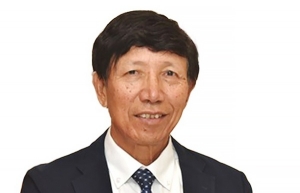 | The vital mission to ramp up foreign capital attraction Vietnam’s foreign capital attraction achieved much last year. VIR’s Kim Oanh met with Phan Huu Thang, former director-general of the Foreign Investment Agency under the Ministry of Planning and Investment, to review recent highlights and weigh up predictions for 2023. |
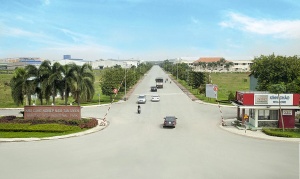 | New FDI challenges for southeast The southeast continues to take the lead in attracting overseas investment despite the increasing problem of land availability. |
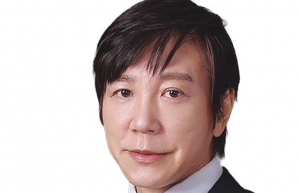 | Japanese investors keeping eye on fresh 2023 trends Last year was a complex one for Japanese businesses operating in Vietnam. After a turbulent 2021, we expected 2022 would accelerate Vietnam's recovery path. However, things have not been easy with the pandemic earlier in the year, the Ukraine conflict beginning, increased energy and logistics costs, and Chinese restrictions. |
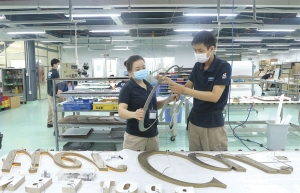 | Diversification still on radar of major foreign investors Despite headwinds caused by geopolitical tensions, Vietnam has seen solid overseas investment, laying the ground for the country to boost inflows and realise its socioeconomic goals. |
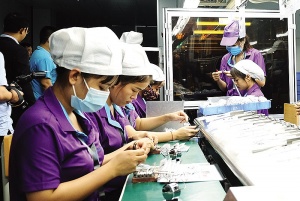 | Hopes rise for blossoming foreign investment in Vietnam The Foreign Investment Agency (FIA), under the Ministry of Planning and Investment, has said that overseas funding into Vietnam is expected to soar this year. |
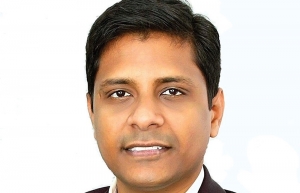 | Trade and investment scenarios for Vietnam Vietnam’s import-export turnover reached $732 billion in 2022, up 10 per cent from 2021, and making it the first year to surpass $700 billion. This is attributed to the signing of new-generation free trade agreements and the more favourable policies on foreign investment, among others. |
What the stars mean:
★ Poor ★ ★ Promising ★★★ Good ★★★★ Very good ★★★★★ Exceptional
 Tag:
Tag:
Related Contents
Latest News
More News
- Vietnam, New Zealand seek level-up in ties (February 19, 2026 | 18:06)
- Untapped potential in relations with Indonesia (February 19, 2026 | 17:56)
- German strengths match Vietnamese aspirations (February 19, 2026 | 17:40)
- Kim Long Motor and AOJ Suzhou enter strategic partnership (February 16, 2026 | 13:27)
- Haiphong welcomes long-term Euro investment (February 16, 2026 | 11:31)
- VIFC in Ho Chi Minh City officially launches (February 12, 2026 | 09:00)
- Norfund invests $4 million in Vietnam plastics recycling (February 11, 2026 | 11:51)
- Marico buys 75 per cent of Vietnam skincare startup Skinetiq (February 10, 2026 | 14:44)
- SCIC general director meets with Oman Investment Authority (February 10, 2026 | 14:14)
- G42 and Vietnamese consortium to build national AI infrastructure (February 09, 2026 | 17:32)
















 Mobile Version
Mobile Version